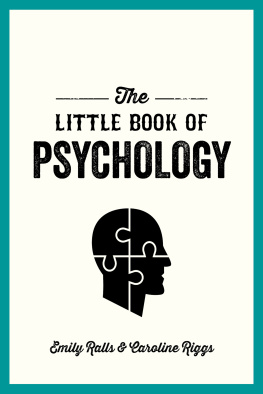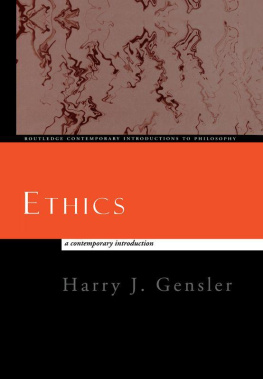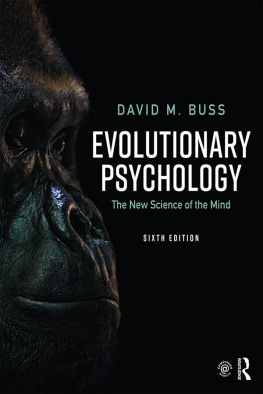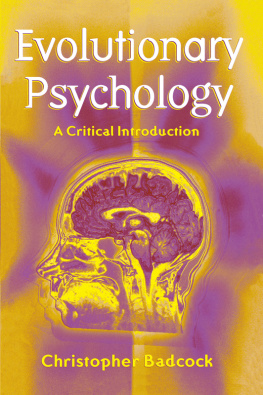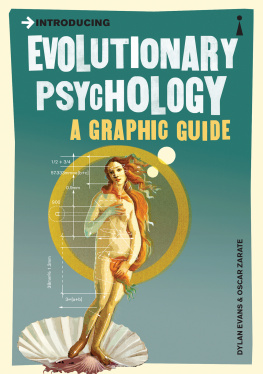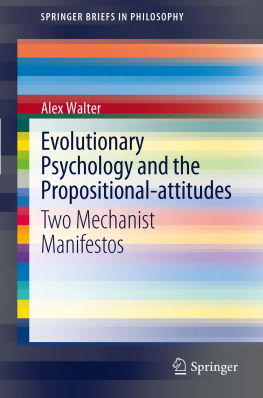This edition first published 2011
2011 Scott M. James
Blackwell Publishing was acquired by John Wiley & Sons in February 2007. Blackwells publishing program has been merged with Wileys global Scientific, Technical, and Medical business to form Wiley-Blackwell.
Registered Office
John Wiley & Sons Ltd, The Atrium, Southern Gate, Chichester, West Sussex, PO19 8SQ, United Kingdom
Editorial Offices
350 Main Street, Malden, MA 02148-5020, USA
9600 Garsington Road, Oxford, OX4 2DQ, UK
The Atrium, Southern Gate, Chichester, West Sussex, PO19 8SQ, UK
For details of our global editorial offices, for customer services, and for information about how to apply for permission to reuse the copyright material in this book please see our website at www.wiley.com/wiley-blackwell .
The right of Scott M. James to be identified as the author of this work has been asserted in accordance with the UK Copyright, Designs and Patents Act 1988.
All rights reserved. No part of this publication may be reproduced, stored in a retrieval system, or transmitted, in any form or by any means, electronic, mechanical, photocopying, recording or otherwise, except as permitted by the UK Copyright, Designs and Patents Act 1988, without the prior permission of the publisher.
Wiley also publishes its books in a variety of electronic formats. Some content that appears in print may not be available in electronic books.
Designations used by companies to distinguish their products are often claimed as trademarks. All brand names and product names used in this book are trade names, service marks, trademarks or registered trademarks of their respective owners. The publisher is not associated with any product or vendor mentioned in this book. This publication is designed to provide accurate and authoritative information in regard to the subject matter covered. It is sold on the understanding that the publisher is not engaged in rendering professional services. If professional advice or other expert assistance is required, the services of a competent professional should be sought.
Library of Congress Cataloging-in-Publication Data
James, Scott M.
An introduction to evolutionary ethics / Scott M. James.
p. cm.
Includes bibliographical references and index.
ISBN 978-1-4051-9397-9 (hardcover : alk. paper) ISBN 978-1-4051-9396-2
(pbk. : alk. paper)
1. Ethics, EvolutionaryTextbooks. I. Title.
BJ1311.J36 2011
171.7dc22
01 2011
To M.B.
Introduction: A Philosopher and a Biologist Walk into a Bar
Any animal whatever, endowed with well-marked social instincts, the parental and filial affections being here included, would inevitably acquire a moral sense or conscience, as soon as its intellectual powers had become as well developed, or nearly as well developed, as in man.
(Charles Darwin, The Descent of Man )
In 1975 the Harvard entomologist and father of sociobiology E.O. Wilson famously suggested that scientists and humanists should consider together the possibility that the time has come for ethics to be removed from the hands of philosophers and biologicized (Wilson 1975: 520). Philosophers, apparently, had had their shot and didn't have much to show for their efforts. Now biologists, armed with a comprehensive understanding of human evolution, were standing by to explain that most human of traits: a sense of right and wrong. But in their enthusiasm, Wilson and his sympathizers had failed to articulate exactly what biologicization meant. For despite the impression left by Wilson's suggestion, it was immediately pointed out (by philosophers, alas) that biology could play and has played a variety of roles in moral theory, ranging from the uncontroversial to the highly contentious.
What this means, first and foremost, is that the real question is not : Does biology play some role in the explanation of morality? (Surely it plays some role.) The real question is: What sort of role does biology play in the explanation of morality? How, in other words, should the story of human evolution influence what we think about our moral lives our moral judgments, our moral feelings, our moral differences, our tendency to avoid wrongdoing, our admiration of self-sacrifice, our hostility toward wrongdoers, and so on? This question, roughly stated, lies at the heart of what we think of as evolutionary ethics.
As a first step toward understanding the many ways in which biology might influence moral theory, consider the following menu of options proposed by Philip Kitcher 1985:
1 Explaining our moral psychology. Biology might provide (at least some part of) an evolutionary account of how our species came to acquire moral concepts and make moral judgments. Biology might explain, that is, how recurrent features of our ancestral environment (for example, social or moral features) led some of our ancestors to think in moral terms.
2 Constraining or expanding our moral principles. Biology might offer new insights into human nature that may constrain or expand the moral principles we already accept. We may learn, for example, that humans tend to value some practices that ethicists had not previously recognized; this in turn might expand the practices that ought to be morally protected.
3 Determining the metaphysical status of moral properties. Biology might settle, once and for all, questions about morality's objectivity. For example, some have argued that evolution fooled us into believing that some acts really are wrong (where nothing in reality is wrong), since believing as much would have promoted cooperation, which in turn would have advanced our ancestors' biological fitness.
4 Deriving new moral principles from evolution. Biology alone might tell us what our moral obligations are. Social Darwinists, for example, argue that since the survival of our ancestors depended critically on promoting social harmony, we thus have a moral obligation to promote social harmony.
As you can see, biologicizing ethics can mean different things to different people. The philosophical significance of this point cannot be overstated: a commitment to one project does not necessarily entail a commitment to any other project. For example, one might argue that the story of human evolution explains in part how we came to have the moral psychology that we have (option 1 above), but deny that the nature of moral obligation is determined by this (or any other) biological fact (option 3). To see why, consider an analogy. Psychologists attempting to understand the nature of visual perception study how the body's visual system a system whose structure was refined over thousands of generations processes an external stimulus, such as a cat. What psychologists expect to learn (and have learned) is something about visual processing ; what they do not expect to learn is something about the nature of cats. Once identified, the lesson is obvious: if you want to know what makes a cat a cat, ask a zoologist, not a psychologist. Similarly, one might argue that moral psychologists expect to learn something about the processing of moral and social information; they do not expect to learn something about the nature of morality itself. If you want to know what makes wrong acts wrong, ask a moral philosopher, not a psychologist. Or so some have argued.
To take another example, one could argue that biology indeed uncovers facts about human nature that bear on our moral obligations (option 2), but deny that our moral obligations are derived from these (or any) biological facts (option 4). Consider another analogy. Some evolutionary psychologists reason that since our early ancestors faced the recurrent problem of getting enough calories from what they ate, one adaptive solution would have been to develop an innate craving for fatty foods. (In case, being from another planet, you doubt we have such cravings, anthropologists have indeed observed this tendency across cultures.) The point, however, is this: even if it is true that our evolutionary past has disposed us to crave and consume fatty foods whenever available, does it seem correct to conclude that we ought to crave and consume fatty foods whenever available? Surely not! If the 2004 film Super Size Me (documenting one man's ill-fated attempt to subsist on a McDonald's-only diet) demonstrated anything, it was that we ought to resist our craving for and consumption of fatty foods. How is this relevant to biology's role in moral theory?


